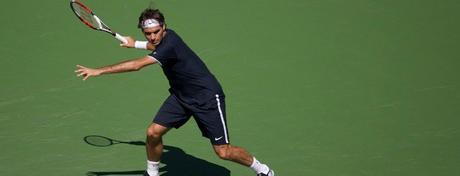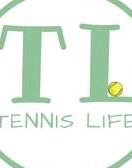
Tennis players will find that the higher the level of play, the harder the players will hit. But that doesn't mean there won't be an occasional heavy hitter on say, the 3.0 level. The difference with those players is that while they can successfully smack the ball, they can only do it once or twice successfully before making the error.
When battling any big hitter, there are things you can do to throw your opponent off their groove and neutralize their power:
Don't try to match their power.
Most of the big hitters like it when their opponent hits the ball hard because it helps them generate power as well, but if that's not your game, DON'T DO IT. You will make more errors and literally frustrate yourself into a loss. Instead, take some pace off of the ball and use the power of placement instead. This will force your opponent to generate their own pace, which can help you draw more errors out of your opponent.
Use the power of placement.
Placement is also key (and you don't need to hit the ball hard.) In singles, if you can hit deep and keep your opponent at the baseline, it will create more distance between you, which will not only force them to create even more
Hit the ball deep. If you can hit deep and keep your opponent at the baseline, it will create more distance between you, which will not only force them to create even more pace to cover the distance but it will also give you a little more time to react to their shots.
Hit short, angled slices. This will force them to move forward and hit up on the ball, and because they are closer in, they won't be able to hit hard.
Keep them moving side-to-side. This is usually a good strategy because your opponent will be moving sideways and won't really have an opportunity to really prepare for their return, much less to step into the ball and take a big swing.
Regardless of placement, your opponent can still get lucky and rip it back, so always be prepared, just in case!
Avoid their comfort zone.
One of the best things you can do against power hitters is to avoid hitting the ball into their "comfort zone", where your opponent would naturally swing their racket and get a good piece of the ball. Hitting the ball with little spin and having it land a couple of feet behind the service line so that your opponent can step into it is DEFINITELY hitting into their comfort zone.
Spin is GREAT against a power hitter and you should use every chance you get - especially the slice. Slicing the ball keeps it low and forces your opponent to have to either hit up on it or slice it back, making it tougher for them to return it hard. Likewise, lots of topspin also makes it more difficult for your opponent, especially if you hit the ball deep into the court.
Handle that serve.
This shot is one you can't affect at all, so you just need to be ready to react. The problem with big serves is that you don't have enough time to take your normal backswing to return the ball, so you should just block it back.
I play a lot of big servers who will force me to block back their first serves, and as long as I can keep my return deep, I will stay in the point. One thing to know is that you can't lazy and just block the ball down the middle of the court every time. A good player will recognize this and start coming into the net after their serve and pick off your return with an easy volley. Try to block the ball with a purpose, if you will. Mix it up by blocking the ball back to their backhand or down the line, as well. Lobbing is a great option too, but make sure it's deep in a corner.
Prepare early.
If you're returning a groundie or serve, blocking is a great option, however, you can still swing at it for a successful return. Just make sure you take smaller backswings so you'll have enough time because, by the time you take a large backswing, the ball could already be past you. As soon as you see which side the ball is coming to get your racket back to that side immediately. This will reduce the mental stress of feeling like you're being rushed to hit the ball.
All of these strategies can be difficult to do when your opponent is firing bullets at you. I know from experience that it's tempting to try to match the power of your opponent, but if that's not your game, you've got to resist because it can cost you the match.. Instead, just try to remember to use spin, placement and most importantly patience, and you can stay in the point long enough to take the advantage and win!


